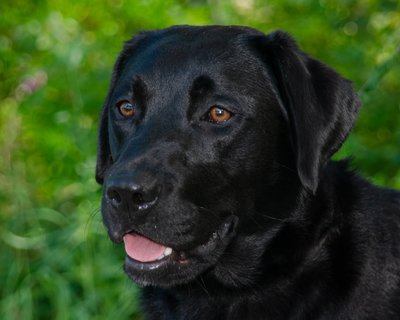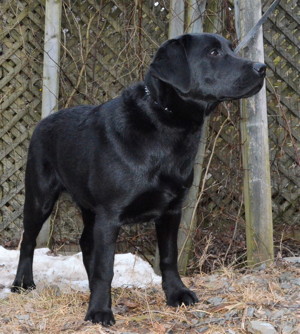HUNT TEST RULES AND REGULATIONS (CKC)
3 Judges
Table of Contents | Prev | Next
Application for Approval of Judges
3.1.1 After a club has been granted permission by the CKC to hold a hunt test, the club must submit an application for Approval of Selected Judges. The application must be submitted so as to be received not less than 120 days prior to the date of the test. The application must set forth the names and addresses of the persons selected to judge, as well as the level assigned to each judge.
3.1.2 When the Judging Panel Application reaches the CKC less than 120 days prior to the date of the test, an administrative fee, as set by the Board, will be assessed against the club.
3.1.3 The test-giving club shall not select any judge who is ineligible to officiate at a test held under these rules and regulations.
3.1.4 Once approval is granted, the CKC will inform the test-giving club that the judges have been approved. The test secretary shall send to each approved judge a confirmation of assignment letter, supplied by the CKC, as well as any other pertinent information that the club may include.
3.1.5 If the Canadian Kennel club is not prepared to approve a selected judge, or it is not prepared to approve the entire assignment for which a judge has been selected, the club must submit to the Head Office of The Canadian Kennel Club the name or names of alternative persons to judge that test or tests.
3.1.6 Once a panel of judges has been approved by CKC, no change will be permitted except when necessary (i.e. death or illness) and with CKC permission. If a judging change is necessary the Hunt Test giving club will inform the CKC and submit for approval the name of a qualified replacement judge.
3.2.1 Any regular member in good standing with the Canadian Kennel Club may be approved to judge a hunt test subject to the qualification requirements in force at the time.
3.2.2 No person shall enter a dog under a judge where that judge has owned, co-owned, trained, sold, held under lease, or handled the dog with 30 days prior to the date of the test.
3.2.3 Any member of a judges immediate family or household shall not enter or handle any dog in any stake in which that judge is judging.
3.2.4 Each test (Junior, Senior, Owner Handler Master, or Master) or division of a test shall be judged by 2 or more judges.
3.3.1 Any member of a judges immediate family or household shall not enter or handle any dog in any stake in which that judge is judging.An open book test must be successfully completed by all first-time applicants applying to judge a hunt test. The passing grade is 80%.
3.3.2 The following point system shall govern the evolution of judging qualifications. Judges must ascend through Junior before they are eligible to judge Senior and must ascend through Senior before being eligible to judge Master. Judges must acquire 2 or more points in each category before ascending to the next level.
3.3.3 Each time an individual completes a judging assignment, he is awarded one point for that particular level.
- Points acquired at the Master level also qualify as Senior and Junior Points
- Points acquired at the Senior level also qualify as Junior Points
- Points acquired at the Junior level only qualify as Junior Points
3.3.4 To be approved as a point bearing test, each level of testing must be judged by 2 judges whose combined judging points for that particular level must be 3 or more.
3.3.5 To be approve to judge, one must also have handled a dog in at least one approved hunt test event in either Junior, Senior or Master within the 5 previous years.
3.3.6 Judges must be regular members in good standing with the Canadian Kennel Club.
3.4.1 It is strongly recommended that clubs select as judges, individuals with broad and extensive background experience in handling and working with Retrievers in the field.
3.4.2 Judges must officiate over all series in their respective assignments.
3.4.3 A judge shall not handle a dog in another test until the test level (or division of a test level) that he is judging is fully completed.
3.4.4 Judges need not set up identical tests when test levels are divided.
3.4.5 A judge of a hunt test shall be familiar with all rules, regulations and procedures pertaining to the type of test being conducted. Judges shall be thoroughly familiar with the applicable standards, and shall be responsible for judging in compliance with the rules, regulations, and standards.
3.4.6 Judges must allow handlers to review their score sheets at the conclusion of the test. Requests to review score sheets are to be made to the test marshal.
3.5.1 The judges and the Hunt Test Committee are in total control of the mechanics within the framework of the regulations.While judges alone determine and design tests to be given, it is the Hunt Test Committees responsibility to ensure the tests fall within the regulations and guidelines of the rule book.
3.5.2 The judges have complete jurisdiction over the gunners, and must be particularly aware of gun safety. They can have the gunners replaced if performance is not satisfactory or safe. This right, however, should not be abused for minor matters since it presents a hardship for the club. On the other hand, the club should have more than an adequate number of gunners to insure the smooth flow of the test.
3.5.3 Only shotguns or devices that simulate the sound of shotguns should be used. While it is not a specific responsibility of the judges, all gunners using firearms should have successfully completed a Hunter/Gun Safety Course and comply with applicable Provincial and Federal regulations.
3.5.4 Judges have the authority to disqualify a dog that is not present within 15 minutes after it is called to run. If a dog is absent after the 15 minute period, it cannot be allowed to run even if it shows up later, unless some previous arrangement had been made through or with the Marshal.
3.6.1 Before judges can begin evaluating the abilities of the entered dogs, they must reach certain decisions among themselves about various details, such as the following:
- Instructions to the handler regarding the position to be taken, the explanation of the test set-up and the explanation of the objectives as they relate to a specific hunting situation. Great care must be exercised so that each handler receives the same instructions. This can be accomplished by summoning all handlers to the line before the series is started, and then providing these explanations to the group once and for all. If it is not possible to assemble all handlers for such a single announcement, the judges can explain the set-up and objectives to the handlers individually before they run their dogs.
- Signaling for birds to be thrown. It is recommended that each set of Official Guns be signaled separately. The signaling judge should be careful that neither his signaling nor the shadow of it might be an unwanted distraction.
- The dog must not be sent until the handler is signaled by the judge.
- Every bird retrieved and delivered to the handler should be inspected by one of the judges. Failure to inspect retrieved birds must be catalogued as carelessness and as an undesirable practice. It is unfair to the dog whose abilities are being evaluated -not only in respect to the question of "hard mouth" but particularly, since it may furnish the explanation for a slow pick-up or some other oddity in the dog's pick-up. Any unusual condition of a bird should be brought to the attention of the judges. If the same birds are to be used again, those that are damaged should not be used again.
- When a dog can no longer receive a qualifying score, instructions to that effect may be given through the Marshal.
- When encountering wild birds, rabbits or other game, Senior and Master level dogs should ignore such distractions or be sufficiently under control to be handled to the fall. Judges should decide how they will deal with this situation.
- The judges should reach an agreement about the degree they will consider a controlled break and should be in agreement on scoring a Junior and Senior dog's trainability for various degrees of controlled breaks. (Note: A "0" is required in Master).
- Instructions given to the Marshal and the Official Guns should be by agreement of the judges. Of course, these will vary from series to series.
- Unless otherwise instructed by the judges, the Official Guns should remain quiet and not move their position after their bird is down. They should volunteer information to the judges only if:
3.7.1 Any person in good standing with the CKC may be used as a substitute judge in an emergency. The substitute judge shall judge the stakes as originally approved by the CKC. Whenever possible, the CKC requirements for combined experience for the stake should be met.
A judge officiating at a hunt test held under these rules shall not be subjected to any indignities of any kind during the progress of the hunt test. It shall be the duty and obligation of the club holding the hunt test to see that this rule is effectively carried out.
3.9.1 A judge must conduct himself in a manner that is fair and not prejudicial to the sport.
Table of Contents | Prev | Next



